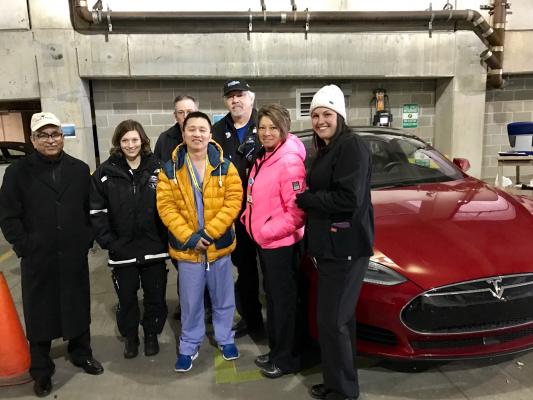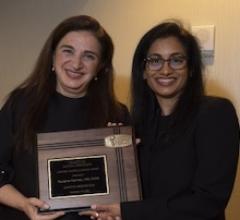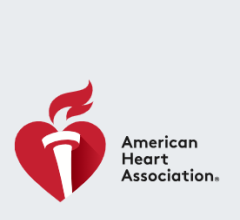
Research team (left to right) Abdul Wase M.D. (principal ivestigator), Marina Brown R.N., Ken Shneider, Thein Aung M.D., Matt Clark, Dawn Hunt and Kimberle Evans R.N., with a Tesla car at Good Samaritan Hospital Dayton, Ohio.
Image courtesy of Joe Carfora.
November 25, 2017 — Sitting in, or standing close to the charging port of a Tesla electric vehicle did not trigger a shock or interfere with implantable cardioverter defibrillator (ICD) performance, according to preliminary research presented at the 2017 American Heart Association (AHA) Scientific Sessions 2017.
Researchers examined the potential effect of electromagnetic interference while charging an electric vehicle battery at 220 Volts. The study included 26 men and 8 women from Good Samaritan Hospital in Dayton, Ohio, average age 69, with implanted cardiac defibrillators of various types.
Adjusting the defibrillators to both their least and most sensitive settings, the devices did not sense the electromagnetic signal from the electric vehicle battery when patients sat in the driver’s seat, passenger seat, backseat or at the charging post (where the electromagnetic interference is at its highest).
These findings suggest that electric vehicles may be safe to use for individuals with cardiac defibrillators, according to the principal investigator, Abdul Wase, M.D. and his team.
The study was conducted by Thein Tun Aung, M.D. and Abdul Wase, M.D., at Good Samaritan Hospital, Dayton, Ohio.
Links to other AHA 2017 Late-breaking Trials
For more information: heart.org


 November 14, 2025
November 14, 2025 









